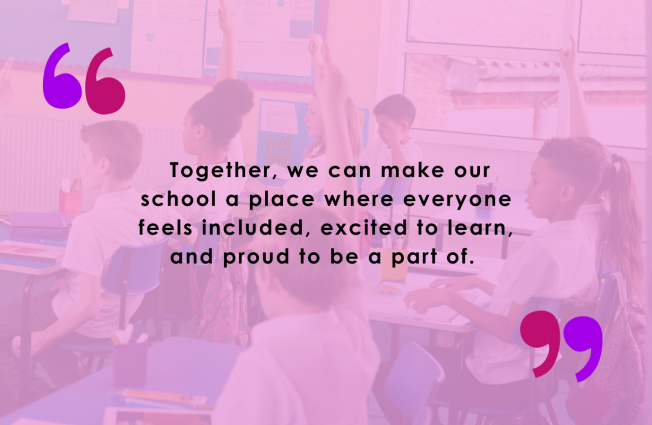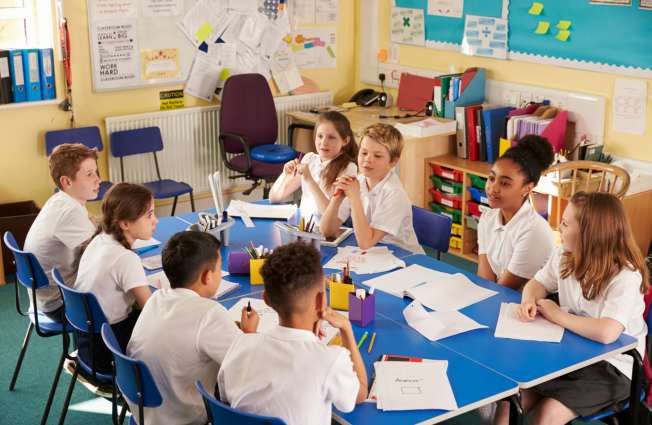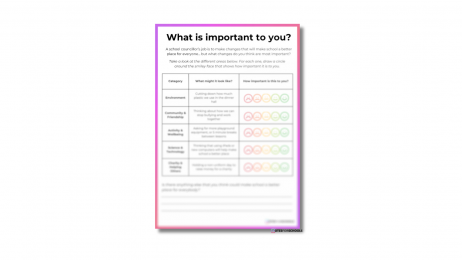Are you ready to inspire your students to become active members of your school community? Setting up a school council is an excellent start, and a crucial step is preparing students for their school council speeches. This is a fantastic opportunity for young minds to voice their ideas and contribute to school life. In this blog, I'll share practical and engaging tips to make the preparation process educational, inclusive, and fun.
1. Emphasising Inclusivity: Get everyone involved!
Firstly and most importantly, every student must feel that they can participate. School council elections (just like real elections) should be accessible and fair, and allow every child to express their ideas.
When it comes to campaigning for votes, this can really come into its own. Whether it's through a traditional speech, a creative song, or even a piece of art, each student should have the freedom to choose how they want to present themselves and their strategy.
My advice would be to avoid giving the classic "school council speech templates" to all. These templates can be on hand as a scaffold, when and if candidates want to express themselves in that way. Instead, have a bank of ‘inspiration’ for your pupils to look into - such as persuasive speech videos, talking about how many local politicians campaign door-to-door and showcasing some of the posters and media that they may have seen in their local area.

2. Generating Ideas:
When it comes to thinking about school council speech ideas, encourage students to think about what matters to them. What changes do they want to see in their school? What are their passions or concerns? Guide them to make a list of topics they feel strongly about – this often leads to the most sincere and impactful speeches.
If your pupils are younger, or unlikely to be sure of which issues they are passionate about, this worksheet could get the ideas flowing. It asks them to think about how important different issues are to them, such as the environment, community and friendship, and charity and helping other. And for pupils who are passionate about all of them? Ask them to number them from 1-5!
3. Structuring the Speech:
Whether students decide to go for a traditional speech for school council or a performing arts show, a good strategy should have a clear formula. Teach your students to start with an introduction about who they are and why they're running for the council. Then, they should move on to outlining their main ideas or proposals, and conclude with a compelling closing statement that summarises their vision and appeals to their fellow students. Always present this as guidance and not necessity! Some of your pupils will want to start with a bold statement including their intent and move onto discussing who they are and what they wish to bring to the school council. Remember what we said in our last post, you want the school council to run itself and flow freely with the children’s guidance.

4. Encouraging Practice:
Like any skill, public speaking improves with practice. Encourage students to rehearse their school council speech or performance in front of a mirror, family members, or friends. This not only boosts their confidence but also helps them refine their delivery and pacing. It may also be a great time to reiterate the importance of some KS2 reading objectives: intonation, tone and volume!

Guiding students in preparing a speech for the school council election is an incredibly rewarding experience. By focusing on inclusivity, idea generation, structure, practice, and creativity, we can help them develop not only their speech but also their confidence and leadership skills. Remember, every school council speech idea that comes from a child is a step towards nurturing a responsible, articulate, and engaged member of the community. creating a supportive/non-judgemental environment/culture that makes children feels comfortable to present their speech to their peers. Let's celebrate and support their efforts every step of the way!



